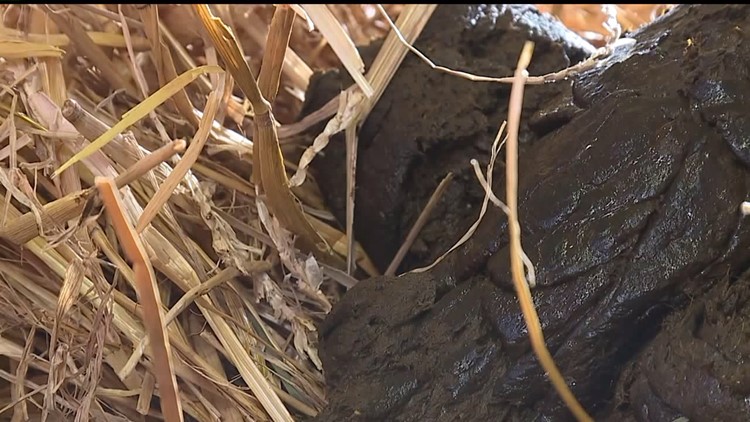HARRISBURG, Pa. --- Manure is one of, if not the most valuable resource coming from the Pennsylvania Farm Show this week.
When the droppings from animals are trucked away, it will serve a purpose.
State Department of Agriculture officials say the majority of the manure will find its way onto a crop field.
For example, mushroom farmers purchase manure from the Farm Show manure.
According to the Mushroom Farmers of Pennsylvania, mushroom are the number one cash crop in the commonwealth.
Stephen Anania of the group says the more than $1 billion industry in Pennsylvania provides two-thirds of the mushroom crop in the country.
Manure from the Farm Show will become an ingredient in what's called the "mushroom substrate," which helps grow types such as white, brown and portobello.
“We mix it with our ingredients, we break it down, we make it what we call mushroom selective. We’re designing it and we’re making a specific blend so mushrooms are what grows in there and nothing else. We don’t get any pathogens or disease,” said Anania.
One problem officials at the Farm Show find: contaminated manure.
Shannon Powers with the state Department of Agriculture said trash tossed aside by visitors finds its way into an animal stall or wheel barrel.
She said it not only makes the manure useless but it's also costly to separate from the rest of the pile.
“It’s hard to be environmentally friendly, just like in your own neighborhood, if you put things in your soil, in your trash, in your way stream that are not easily disposed of," said Powers.
Powers explained that the Department of Agriculture is seeing a "culture change" when it comes to methods of keeping soil and manure where it needs to be on a field.
She said equipment is now developing to improve ways to keep that manure on the soil instead of in places like the Susquehanna River or eventually into the Chesapeake Bay.
One example is tractors with the ability to drill into existing soil, allowing farmers to avoid plowing every time.
“Drill into the soil, plant a crop over it so it will not only generate more income for the farmer…it also keeps the soil, the valuable nutrients, where we want them and not in the stream," said Powers.
Another method she said was maximizing real estate instead of losing valuable land near water.
They're investing in teaching farmers ways of growing around the source of water to act as a natural barrier against soil and manure runoff.
“Trees may generate income for the farmers, they may be like a pecan tree. The plants surrounding the stream will also act as a filter, keeping that nutrients or manure out of the stream, keeping the soil out of the stream,” said Powers.
Powers said the Pennsylvania Department of Agriculture is working with private industry to improve environmental practices without hurting the profits of farmers.
“That kind of equipment and practices that protect the environment are investments and it’s a learning curve that we’re all participating in together,” said Powers.
The Pennsylvania Department of Agriculture projects agriculture in the commonwealth holding a little over $137 billion economic impact.



